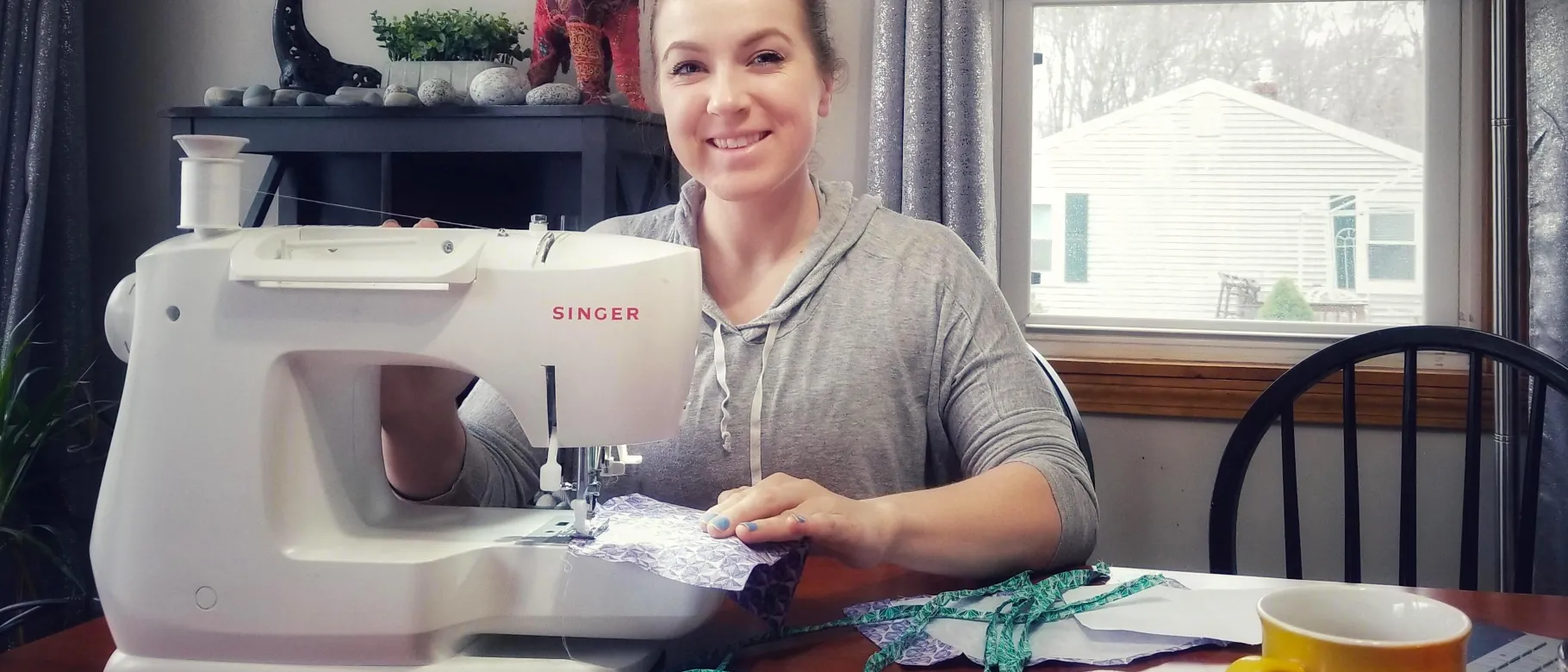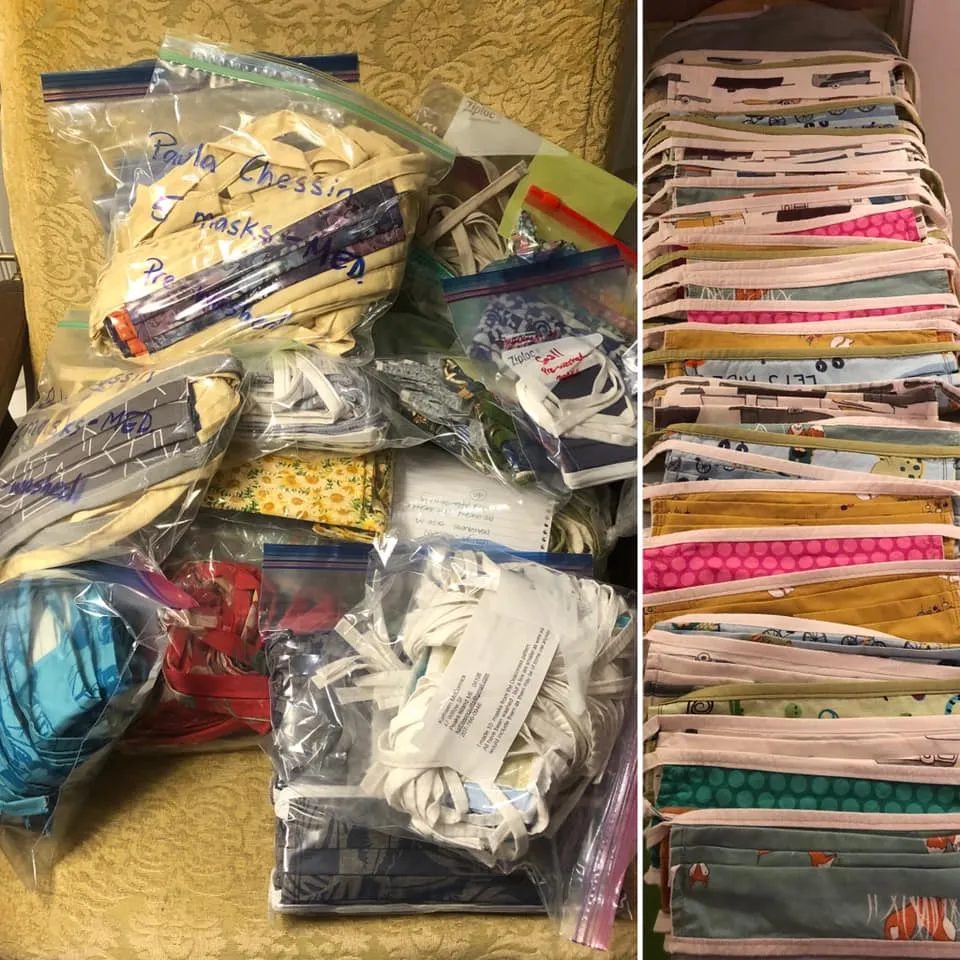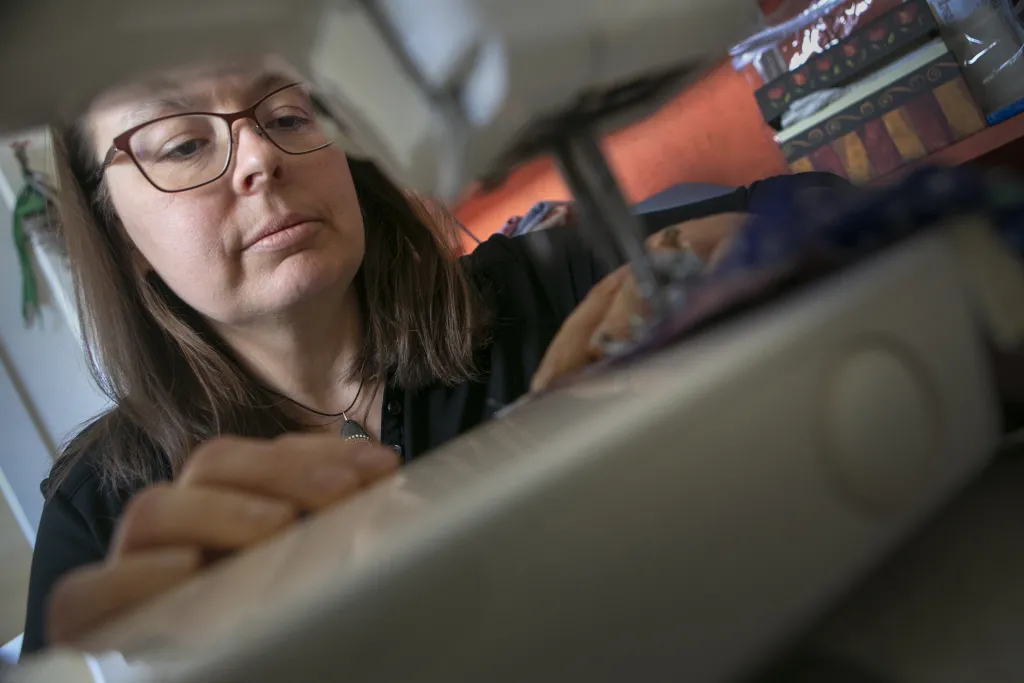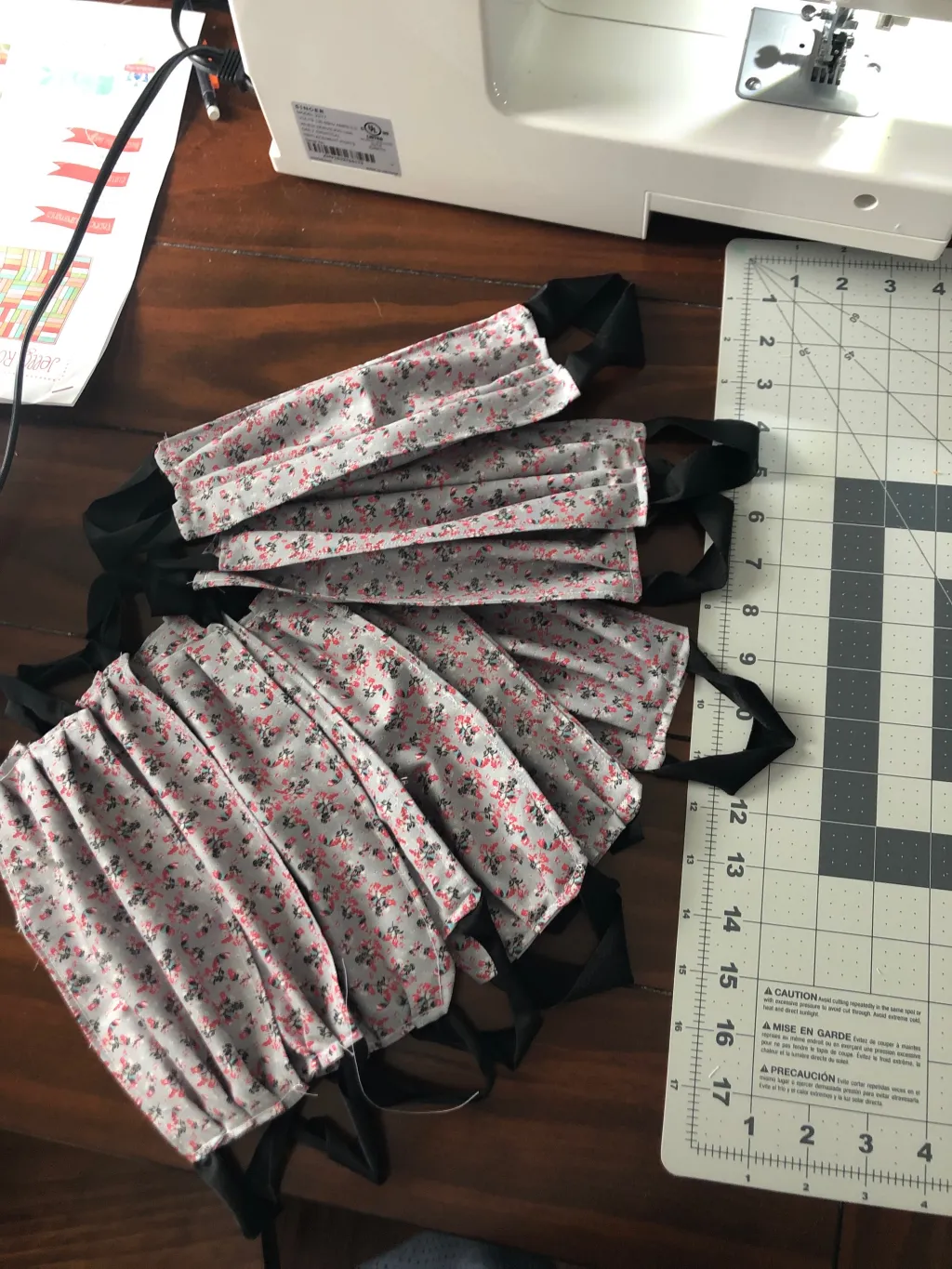UNE community making, supplying masks for pandemic-strained health care workers

As the supply of personal protective equipment and respiratory masks for health care workers dwindles due the coronavirus pandemic, a number of University of New England students, faculty, and staff are volunteering their talents to meet the demand.
One group, the UNE SEAMSTARS, are stitching together masks from scratch to provide to hospitals and health clinics in need of supplies. The student-led group is not affiliated with UNE, but a number of students within the College of Osteopathic Medicine (UNE COM) have signed up to take part in the effort.
The project was the brainchild of Emily Schaffer (D.O., ’21), who is currently completing her clinical rotation at Kent Hospital in Warwick, Rhode Island. Schaffer reached out to hospital officials to ask if she could sew masks for staff there, and began making masks herself.
“I was provided with a template at the time and made a couple of masks on my own. But then, I wondered if other students at UNE had also been made aware of their ability to step forward and do the same,” Schaffer said. “My whole goal with creating the SEAMSTARS was to create an avenue to encourage students to make masks for others.”
Students were provided a spreadsheet to sign up as either sewers or donors of supplies. So far, 13 people have signed up to sew masks, though Schaffer does not have an official count of how many the group has produced.
“It's really more of a localized effort for those who can actually make the masks to do so and then for those who don't sew to contribute in some way,” she said.
In addition to health care workers, the U.S. Centers for Disease Control and Prevention (CDC) now recommends all people wear cloth face coverings in public settings where social distancing measures are difficult to maintain, such as grocery stores.
SEAMSTARS are encouraged to fashion masks designed with pockets so that a respirator or other filter can be inserted to block particulate matter, such as the coronavirus, from passing through. Currently, the SEAMSTARS are trying to source Halyard H600 polypropylene material to craft their masks. The material is often used to wrap surgical trays and can reportedly block 99.9% of particulates.
A similar effort by a group of students within the College of Dental Medicine is also underway. Three students, Drew Fitzgibbon (D.M.D., ’20), Anna Forcey (D.M.D., ’22), and Katelyn Pierson (D.M.D., ’22) are participating in the Make to Give project, sponsored by JoAnn Fabrics.
The project aims to support medical personnel by donating 100 million handmade masks to hospitals across the country. Participants pick up mask kits curbside at JoAnn Fabrics locations, where they return them upon completion. Finished masks are then distributed to local hospitals.
For each of the three students, becoming involved with the project was personal.
“I started working on creating masks because my mom is a health care provider back home in Wisconsin, and she is still seeing her patients every day,” said Forcey. “She pointed out to me how important it is to protect both the patients who require treatment and the people treating them.”
Forcey said she sews her masks while video chatting with her mom. The time allows her to bond with her family at home while making a difference locally in Maine.
“My mom and I see this as a way to help each of our perspective local communities in a small way,” she noted. “It feels great to have accomplished something at the end of the day that I know will have a positive impact.”
Pierson said it was her friends and family who inspired her to act.
"My sister is a nurse, and many of my close friends are in the health care field and are dealing with this pandemic first hand. I saw the opportunity to do something for my community, and I jumped right on it,” said Pierson. “Making masks is one small contribution that I can do to help out those who are already giving so much."
Fitzgibbon echoed Pierson's sentiment.
"I have a sewing machine, and I was looking for some projects to get into with all this free time. Then, I started hearing from a couple of my friends who are nurses and health care professionals. They were really appreciative that I was doing this, and that meant a lot to me," he said.
Another statewide effort to supply masks to health care workers, Sewing Masks for Maine, also has ties to UNE.
Kris Hall, program manager for the Center for Excellence in Collaborative Education (CECE), is one of the founding members of the organization, which has, as of April 9, supplied over 2,800 cloth masks to 130 health care facilities across Maine.
“What we wanted to do was recognize the volume of masks needed, and we also wanted to standardize what the health organizations were getting,” said Hall, a former costume shop supervisor and avid stitcher.
In a similar process to the student-led SEAMSTARS, volunteers with Sewing Masks for Maine can perform several tasks: stitch masks together, pick them up at designated drop-off sites for quality control, or take them to health care settings.
Hall said several UNE faculty and staff have now become involved in making the masks, which are all based on one design that was created in consultation with area hospitals. The masks are not intended to replace the N95 respirators recommended by the CDC to protect against the coronavirus, Hall said, but they are intended to preserve the life of those respirators.
Hall added that the program has allowed people to make a difference from the safety of their homes.
“The pandemic has had the effect of really focusing people's attention and their intentions. The edict to stay home makes people feel incredibly powerless,” she said. “I never expected that a sewing machine would have such a central place in the ‘apocalypse,’ but to think that sewing — which many of us would naturally be doing anyway if we were trapped at home — could help save lives and reduce the negative impact of this disease is incredibly empowering.”
Hall also spoke to UNE students and alumni who may be working on the front lines of the coronavirus pandemic, saying the handmade masks are a sign of support during this difficult time.
“I want all of our students to feel supported,” she said. “We haven't let go of you. You're not floating loose in the world. We still care about you and want you to be well."


